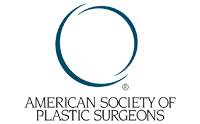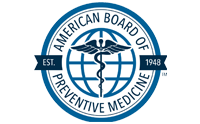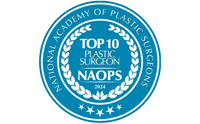If you are a resident of Doylestown, PA, Flemington, NJ, or surrounding states as far as New York, Delaware and Maryland, or Virgina Buinewicz Cosmetic Surgery & MedSpa provides treatment to those who have been affected by Breast Implant Illness. Dr. Brian Buinewicz is a leader in surgical removal of implants with capsulectomies and has helped many patients who have needed treatment for illnesses caused by breast implants.
Wednesday October 30th | 5:30 PM to 7:30 PM
THE BEST OF BUCKS OPEN HOUSE

Celebrate our 2024 Community Choice
Award for Plastic Surgery & Medspa
- - Hors d'oeuvres and drinks
- - 10% off all BTL treatments and 20% off gift cards
- - Discounted surgery packages and the chance to win raffle prizes valued at $1,500!

Doylestown 3655 Route 202 Suite 225, PA 18902 | 215-647-9668
Wednesday October 30th | 5:30 PM to 7:30 PM
THE BEST OF BUCKS OPEN HOUSE
Celebrate our 2024 Community Choice
Award for Plastic Surgery & Medspa

- Hors d'oeuvres and drinks
- 10% off all BTL treatments and 20% off gift cards
- Discounted surgery packages and the chance to win raffle prizes valued at $1,500!
Doylestown 3655 Route 202 Suite 225, PA 18902 | 215-647-9668
What is Breast Implant Illness?
Breast Implant Illness is a constellation of symptoms potentially related to an abnormal immune response to breast implants. What is causing this illness is not known at this time, but is possibly an altered immune response or chronic inflammatory response to breast implants or the chemicals used in the manufacturing process of breast implants. What is causing the reaction and inflammation is unknown at this time (possibly a foreign body reaction to the implant itself, an excess inflammatory reaction to a contaminated implant, or a reaction to silicone or any of the chemicals used to make an implant). These symptoms usually begin around five to seven years after implants are placed, begin to occur gradually and symtpoms continue to multiply and affect multiple organ systems. Many women notice the following symptoms in conjunction with Breast Implant Illness, but there are many other symptoms since Breast Implant Illness seems to affect almost every organ system in the body:
- Brain Fog
- Pain (localized to the chest or systemic)
- Fatigue
- Depression
- Anxiety
- Migraines and headaches
- Musculoskeletal issues such as muscle pains and joint pains
- Gastrointestinal issues (bloating, food intolerances, weight gain, reflux)
- Thyroid issues
- Vision changes including dry eyes
- Hair loss
- Rashes & Acne
Symptoms such as tension, pressure, excess weight, stiffness, chronic chest wall and breast pain can be more mechanical issues not necessarily related to Breast Implant Illness.
Dr. Buinewicz, Robyn Towt, and Danielle Valoras Live discussion on Breast Implant Illness with BIHS
Hear what Dr. Buinewicz has to say about BII, explant, healing and other BII issues. LINK mentioned during BIA-ALCL discussion.
Top Facts About Breast Implant Illness
What is Breast Implant-Associated Anaplastic Large Cell Lymphoma (BIA-ALCL)?
BIA-ALCL is a rare spectrum of disease that can range from an indolent accumulation of fluid around the breast (seroma) to a potentially metastatic lymphoma especially when there are delays in diagnosis. BIA-ALCL is not a cancer of the breast tissue itself. When diagnosed early, it is readily curable. If the disease is advanced, chemotherapy or radiation may be required. As of January 4, 2021 FDA reports 933 confirmed cases worldwide of ALCL with 36 confirmed deaths globally, (13 in the United States), attributed to BIA- ALCL since the disease was first reported nearly 20 years ago.
BIA-ALCL is currently classified as a lymphoma. Many experts believe that it behaves clinically as a lymphoproliferative disorder (LPD) that encompasses the spectrum of disease from benign CD30+ seromas, to CD30+ malignant seromas, to invasive capsular disease, and finally metastatic disease. Current ASERF research is underway to further understand the proper classification of this disorder. Similar to LPDs, BIA-ALCL is a highly treatable disease with high cure rates.
What causes BIA-ALCL?
ASAPS, ASERF, the FDA, and the implant manufacturers are intensely studying BIA-ALCL. To date, no specific causal factors have been identified. Implant texturing, bacteriologic contamination, and genetic factors have been implicated and are undergoing further study.
The best theory today is that a combination of factors is required for the development of BIA-ALCL:
- Textured implants (surface area to sequester bacteria)
- Chronic inflammation
- Genetic predisposition
- Time
Genetic factors may play a role. Some geographic areas have reported very few cases. Ongoing data collection worldwide will help to determine whether there are any genetic propensities for this disease.
What are the symptoms of BIA-ALCL?
The first symptom of BIA-ALCL is usually a swelling of the breast between 2 to 28 years after the insertion of breast implants, with an average of about 8 years after implantation. The swelling is due to a collection of fluid surrounding the implant. This fluid can cause the breast to enlarge significantly over a period of days or weeks. It can also present as a lump in the breast or armpit, firmness of the breast, or pain. It is usually easily and completely treated if patients see their doctor at the first symptom.
How is BIA-ALCL diagnosed?
There is no blood test to specifically screen for BIA-ALCL. The expert opinion is that asymptomatic women without breast changes do not require more than routine mammograms and breast exams. But if a patient experiences a change in her breasts – especially if there is swelling or a lump – she should undergo immediate examination, imaging, and consultation with a plastic surgeon. If there is fluid around the implant, the fluid should be drained and tested for:
- Cytology
- CD30
CD30 immunohistochemistry is not diagnostic for BIA-ALCL; however, it is a marker for activated T-Cells. If a patient’s seroma is CD30 positive, and the cytology is negative, this likely represents a precursor to BIA-ALCL and should be treated with total capsulectomy. If the seroma test is CD30 negative with negative cytology, then it should be treated as a benign seroma using the individual surgeon’s protocol.
The majority of seromas seen clinically are benign seromas and not BIA-ALCL.
Management of all seromas should be by a board-certified plastic surgeon. Mammograms are not useful in diagnosing BIA-ALCL. In confirmed cases, PET or MRI/CT scans may be used to help stage the disease.
If a patient wants to have their textured implants removed and replaced, the options are:
- Exchange to smooth implants
- Exchange to smooth implants with a capsulectomy
What Types of Implants Cause Breast Implant Illness?
BIA-ALCL appears to currently develop exclusively in women with textured implants. There is no evidential difference in risk based on the material of the implants (e.g. saline or silicone). To date, there has not been a case of BIA-ALCL in a patient with only smooth implants. There is a small number of patients with smooth implants who are reported as having BIA-ALCL, but these patients have a history of having textured implants or another type of implant previously. There are several theories which attempt to explain the higher rate for textured implant patients: one theory is that the increased surface area of textured implants allows a higher number of bacteria around the implant, which forms a biofilm in some patients, and can result in chronic inflammation, ultimately leading to a proliferation of lymphocytes. Another theory is that textured implants create greater inflammation because of chronic mechanical irritation, and another postulates that microscopic shedding of silicone from the textured wall induces inflammation.
The FDA reports that the type of implants a woman has can influence her risk of developing breast implant illness. Based on current data, the risk is defined by the degree/type of texture of the implants as follows:
- Grade 1 (Smooth only) – In global databases, there has not been a confirmed case of BIA-ALCL in a patient who had smooth implants only. In the Feb 2019 FDA statement, it was reported that “there have been reports of BIA-ALCL in patients with smooth-surfaced implants and many reports do not include the surface texture of the implant at the time of diagnosis.” At the time of this publication, it is known that a single case of smooth only BIA-ALCL was originally reported to the FDA; however, it was later determined that this was not accurate and that the patient had received textured implants followed by smooth implants, and the report to the FDA was amended.
- Grade 2 (e.g. Microtexture, Siltex and similar) – 1:82,000
- Grade 3 (e.g. Macrotexture, Biocell and similar) – 1:3,200
- Grade 4 (e.g. Polyurethane) – 1:2,800*
*Based on data from an Australian study – however, this was 100% Silimed polyurethane implants that had a manufacturing defect and have since been taken off the market. Loch-Wilkinson, A., et al. (2017). “Breast Implant-Associated Anaplastic Large Cell Lymphoma in Australia and New Zealand: High-Surface-Area Textured Implants Are Associated with Increased Risk.” Plast Reconstr Surg 140(4): 645-654
Why Did Allergan Announce a Recall of BIOCELL® Implants?
On July 24, 2019, in response to a request by the FDA, Allergan reported a voluntary recall of all BIOCELL® textured implants and expanders, worldwide. The recall includes the Natrelle Saline-Filled breast implants, Natrelle Silicone-Filled breast implants, Natrelle Inspira Silicone- Filled breast implants, and Natrelle 410 Highly Cohesive Anatomically Shaped Silicone-Filled breast implants. The recall also includes tissue expanders used by patients prior to breast augmentation or reconstruction, including Natrelle 133 Plus Tissue Expander and Natrelle 133 Tissue Expander with Suture Tabs. This is a recall of unused Biocell implants (Biocell inventory and sold Biocell products) but not Biocell implants that have been used in patients who are asymptomatic. The FDA does not recommend or suggest that asymptomatic patients be explanted; rather that the company refrain from selling BIOCELL® implants moving forward. Patients with these implants should see their plastic surgeon for evaluation, examination and any further studies or treatments as indicated based on their evaluation.
“Based on the currently available information, including the newly submitted data, our analysis demonstrates that the risk of BIA-ALCL with Allergan BIOCELL® textured implants is approximately six times the risk of BIA-ALCL with textured implants from other manufacturers marketing in the US,” the FDA said in a statement.
Melissa – Getting My Life Back After Breast Implant Illness
Real Patient Melissa Details Her BII Journey
 A Message from Dr. Buinewicz
A Message from Dr. Buinewicz
“I rarely put breast implants in patients any more – I am usually able to talk them out of them when we go over risks, but I do have breast reconstruction patients that I still treat and follow. If someone wants an implant and makes a well informed decision to do so, then they should be able to choose to proceed (just like making the decision to take them out). My job as their treating physician is to make sure they make a well informed decision to proceed with surgery and understand all risks and to follow these patients long term while their implants are in. If they have any issues down the road, I want them to feel comfortable that they can see me and I will remove them and provide care (not like the usual stories you hear).
The en bloc issue is very controversial. En Bloc is a total capsulectomy where you remove the capsule and implant in one piece without tearing it. A total capsulectomy is removing the capsule completely, but there are tears. En Bloc surgical resections are what you do for cancers – take normal tissue to make sure you grossly remove everything. To accomplish this, you must sacrifice normal tissue, and possibly muscle and bone. This would mean removing some or all of your breast in addition to possibly some of your chest wall. This potentially could significantly deform a patient and more importantly could permanently affect their health and function as well as lead to other complications. There are NO published studies yet showing that there is an improvement in outcomes with BII if you do an en bloc capsulectomy. My published data as well as preliminary data from the ASERF breast implant illness research project confirm this – I hope other surgeons will publish their data as I continue to do. This is what we will be addressing also with our ongoing prospective study. I have performed close to 1000 capsulectomies and most are total capsulectomies ( capsule completely removed with some tears) not en bloc. My patients continue to see around 85% significant improvement in symptoms and around 70% completely recovered with low complication rates and relatively quick return to function..
I worry more that someone out there is pushing for guarantees with surgical procedures – it is unethical as a physician to guarantee any outcomes or part of any procedure because there are inherent risks that we as physicians cannot control. That’s why you will read and sign a detailed informed consent that we will review at your preoperative appointment. I took the Hippocratic Oath when I graduated medical school and will always adhere to the dictum of “first do no harm.” If someone (doctor or not) guarantees anything, get it in writing – or better yet, run the other way.
If you remember years ago when women had breast cancer, radical or modified radical mastectomy were performed – now the majority of patients can save their breast with lumpectomies and have the same long term results. We learned from ongoing research and follow up of patients that being overly aggressive is not always necessary in this example. That being said, total vs en bloc vs partial capsulectomy is one of the “hot topics” in breast implant illness syndrome and absolutely needs more published research. Remember, removing the implants and capsules is the first step to getting better, not the only step. Silicone is a bioactive molecule and your body’s immune system will have the ability to start to heal once the toxin is removed from you. Many patients do need extra help with this, hence the detoxification protocols for breast implant illness syndrome. I hope this helps clear things up.”
Dr. Buinewicz Discusses Breast Implant Illness
As An Ongoing Issue
As An Ongoing Issue
Dr. Buinewicz Discusses Breast Implant Illness Removal
How is Breast Implant Illness Treated?
Dr. Buinewicz offers removal of the implants or implant material and the surrounding capsule with capsulectomy techniques.
Total Capsulectomy
A total capsulectomy is a surgical procedure to remove the capsule of scar tissue that forms around breast implants. During a total capsulectomy, Dr. Buinewicz will make an incision in the breast tissue and remove the entire capsule of scar tissue surrounding the implant, as well as the implant itself. Once the capsule and implant are removed, the incisions will be closed with sutures.
En Bloc Capsulectomy
An “En Bloc” capsulectomy is a total capsulectomy without making any tears or holes in the capsule. This usually requires sacrificing normal tissue (en bloc is a term used for cancer operations). Many times an en bloc capsulectomy is technically not able to be performed due to thinness of the capsule, but it can provide some advantages when it is possible. In our initial retrospective study, we saw no difference in improvement in symptoms between en bloc capsulectomy and total capsulectomy techniques.
How is BIA-ALCL treated and what is the prognosis?
Current recommendations for the treatment of BIA-ALCL call for bilateral capsulectomy (removing all the scar tissue) and removal of the old breast implants. This is a common procedure performed by plastic surgeons, identical to what is done when an implant has ruptured or capsular contracture has developed. Smooth implants can be inserted or the patient can choose not to have implants replaced. In all early-stage cases, the disease has been fully cured by this surgery alone. The majority of patients require no additional treatment. However, if the disease has spread to lymph nodes or grown into the adjacent tissues, chemotherapy and radiation may be necessary.
Should patients have their implants removed because of BIA-ALCL?
For textured implant patients, neither the FDA nor any plastic surgery society currently recommends that women should preventatively remove textured breast implants to prevent BIA- ALCL. However, there are women who have been concerned enough about BIA-ALCL and have chosen to have their implants removed. There are some women who were already considering a breast implant revision, and the BIA-ALCL issue gave them one more reason to proceed.
What Treatment Options are Offered by Dr. Buinewicz?
Dr. Buinewicz offers total removal of the capsules (total capsulecotmy) and the implants or implant material if the implant is ruptured, cultures of the capsule and implant to check for bacterial or fungal contamination and pathologicla examination of the tissue removed to check for cancers or lymphomas. A total capsulectomy means complete removal of the capsule. An “En Bloc” capsulectomy is a total capsulectomy without making any tears or holes in the capsule. This usually requires sacrificing normal tissue (en bloc is a term used for cancer operations). Many times an en bloc capsulectomy is technically not able to be performed due to thinness of the capsule, adherence of the capsule to important structures or other technical issues. However a complete, total capsulectomy is always the goal and can be performed with minimal complications to remove the capsule in its entirety. In our initial retrospective study, we saw no difference in improvement in symptoms between en bloc capsulectomies versus total capsulectomies. A significant number of patients had imp,rovement in their symptoms. This explant and total capsulectomy are always performed by the doctor himself.
When performing the explant procedure and capsulectomy, Dr. Buinewicz is very thorough. He carefully examines the area where the implants were and cultures the inside of the capsule and the implant. The surgical site is thoroughly irrigated with a dilute betadine solution and then a drain is placed. Photographs are taken to document total removal of the capsule.
While treating Breast Implant Illness, Dr. Buinewicz also checks for irregular lumps and masses in the chest and breasts. He recommends annual mammograms following the explantation and capsulectomy.
Some patients with asymmetry of their breasts, drooping of their breasts or ptosis, or desire to improve the shape of their breasts may benefit from a breast lift or mastopexy. This does not add significant extra operating time and recovery is about the same as an explantation and capsulectomy only. Dr. Buinewicz will provide guidance regarding a breast lift at the consultation.
Some patients are desirous of replacing volume after implant removal with fat grafting. Dr. Buiewicz recommends first treating the problem of Breast Implant Illness syndrome br removing your implants and capsules and once you are healing, then consider addressing the volume issues.
WHY CHOOSE DR. BRIAN BUINEWICZ?
AT HUNTERDON COUNTY, NJ and BUCKS COUNTY, PA
Dr. Brian Buinewicz is a triple board-certified plastic surgeon with over 23 years of experience specializing in breast, abdominal, and BII.
He is an award-winning, internationally recognized surgeon and the Emeritus Chief of Plastic Surgery at Abington Hospital, where he served for 30 years. Dr. Buinewicz is a Clinical Instructor at Temple University in the Division of Plastic Surgery. His approach prioritizes personalized patient care, ensuring tailored solutions for each individual.
His philosophy embodies his mission:
"One surgeon, one team, dedicated to you, the patient."
What is Breast Implant Illness Recovery Like?
How Long is Breast Implant Illness Recovery?
Most patients have their drains removed and are showering within 4-5 days. Average time until being able to drive is about one week, and patients will be able to begin resuming normal activity within two weeks. Because of the pain blocks Dr. Buinewicz uses, recovery is faster and patients use little to no narcotics. Many patients will heal and start to feel better quickly.
If A Breast Implant Patient Sees A Plastic Surgeon When She Develops The First Symptom, Will She Be Cured?
That answer is not known and is a very important piece of information for patients and plastic surgeons. Most of the time patients see their plastic surgeon right away when they develop enlargement or an issue of the breast. In these cases, the disease is almost always cured with a straightforward operation. Some women with advanced disease did not act on earlier symptoms or saw a doctor who did not properly diagnose/treat them. There are a few patients who presented with advanced disease who said that they never had earlier symptoms.

What Follow-Up Care Will Be Needed?
Breast implant patients should have ongoing follow up. Current FDA recommendations and ASAPS recommendations are that patients with textured implants with no symptoms should not do anything and implant removal is not recommended. If the patient has silicone filled implants, then the FDA recommends an initial ultrasound about 5-6 years after implantation and follow up ultrasounds every 2-3 years based on yearly physical exams. MRI is indicated when the ultrasound is equivocal or an MRI is recommended.
How many cases of BIA-ALCL have been confirmed?
As of March 2023, the FDA reports 1,400 confirmed worldwide cases of ALCL and 411 cases in the United States, with 36 confirmed deaths globally (13 in the United States) attributed to BIA-ALCL since the disease was first reported nearly 20 years ago.
What Research Is Being Conducted?
ASERF is currently funding two BIA-ALCL studies on the Pathogenesis of BIA-ALCL and Genomic Profiling to Understand the Pathogenesis of BIA-ALCL.
ASERF is sponsoring leading, cutting edge research on BIA-ALCL to better define the disease and improve diagnosis and outcome. More information can be found on the ASERF website: www.aserf.org
Dr. Buinewicz is actively enrolling patients with suspected Breast Implant Illness having total capsulectomies and implant removal in an ongoing prospective trial as a follow up of our initial retrospective study and to address the limitations of a retrospective study. To date we have 106 patients enrolled.
Outcomes of Implant Removal and Capsulectomy for Breast Implant Illness in 248 Patients
Abstract
Background:
Breast implant illness (BII) is a term popularized by social media to describe systemic symptoms that patients ascribe to their breast implants. Though the concept of implants as an underlying cause for a systemic illness remains controversial, few studies have delineated the implant characteristics, capsular histology, and outcomes of patients who undergo explantation for BII.
Methods:
We retrospectively reviewed the demographics, presenting symptoms, outcomes, capsular histology, and culture results of all women who presented to the senior author with symptoms attributed to BII and underwent breast implant removal with capsulectomy from August 2016 to February 2020. Chi-square and logistic regression analyses were performed to evaluate association between implant type, composition, and findings of inflammation on capsule pathology.
Results:
Among 248 patients, 111 (23%) capsules demonstrated inflammatory changes on permanent pathology. Capsular inflammation was independently associated with silicone versus saline (right odds ratio [OR] = 2.18 [1.16–4.11], P = 0.016, left OR = 2.35 [1.08–5.12], P = 0.03) and textured versus smooth implants (right OR = 2.18 [1.16–4.11], P = 0.016, left OR = 2.25 [1.17–4.31], P = 0.01). Silicone material was present in the capsules of 12 patients (4.8%). Fourteen patients had positive cultures. There was one pneumothorax (0.4%), three hematomas requiring evacuation (1%), and two DVTs (0.8%). Of 228 patients, 206 (90.4%) reported high satisfaction with the outcome of the procedure.
Conclusions:
In a large cohort of BII patients, we found that capsular inflammation is significantly associated with silicone and textured implants. Implant removal with capsulectomy can be safely performed in patients with BII with a low complication rate and high patient satisfaction.
For more on managing and treating breast implant illness, contact us today. Dr. Buinewicz of Buinewicz Cosmetic Surgery & MedSpa specializes in breast explant and capsulectomy procedures with extensive BII experience. We welcome patients from Hunterdon County, NJ, and Bucks County, PA.
Why Choose Dr. Buinewicz?
Dr. Brian Buinewicz is a triple board-certified plastic surgeon. He specializes in cosmetic and aesthetic plastic surgery and has helped many patients in his more than 23 years of experience. When it comes to treating Breast Implant Illness, Dr. Buinewicz has performed more than 2000 explants and total capsulectomies, an average of about six procedures per week. Dr. Buinewicz is a leader in this field and has published an article in PRS Global Open titled “Outcomes of Implant Removal and Total Capsulectomy for Breast Implant Illness: A Retrospective Review of 248 Patients.” You can access the article here : https://journals.lww.com/prsgo/Fulltext/2021/09000/Outcomes_of_Implant_Removal_and_Capsulectomy_for.3.aspx
Dr. Buinewicz coauthored an article for Advances in Cosmetic Surgery titled Understanding Breast Implant Illness.
Key points:
- Review of breast implant illness symptoms and systemic complications.
- History of breast implants and the associated adverse events.
- The impact of certain breast implant-related chemicals like silicone on the body.
- Explantation of the breast implant and capsule reduces systemic symptoms in all populations.
- Saline and silicone, smooth, and textured all come with risks of cancer.
- Identifying the patients’ need for explant based on the clinical symptoms and imaging studies.
Click here to read the article.
Dr. Buinewicz is praised among his patients. In fact, one of his former patients, Tara Hopko, wrote a book detailing the Breast Implant Illness treatment procedure and how Dr. Buinewicz helped her in her time of need. The book, “Let Me Get This Off My Chest,” explains the seriousness behind Breast Implant Illness and how Dr. Buinewicz is able to effectively treat and help patients.
Many women in the greater Philadelphia and New Jersey areas have come to Dr. Buinewicz seeking help for complications caused by silicone and saline implants. We see and treat patients from many states – it is an honor and complement that patients will travel to Dr. Buinewicz for care.





